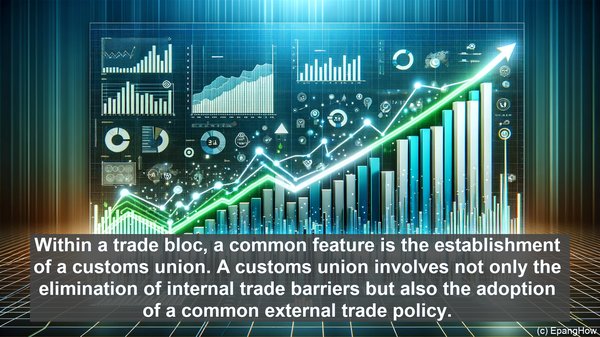Introduction: The Significance of Economic Integration
Hello, everyone! In today’s globalized world, economic integration plays a pivotal role in shaping international trade. It fosters cooperation, enhances market access, and drives economic growth. Two key terms that often arise in this context are ‘trade bloc’ and ‘single market.’ While they may seem similar, they have distinct characteristics and implications. Let’s dive in!
Defining Trade Blocs: A Collaborative Framework
A trade bloc, also known as an economic bloc, is a group of countries that come together to promote trade and economic cooperation. The members of a trade bloc typically share geographic proximity or have similar economic interests. By forming a trade bloc, these nations aim to eliminate barriers to trade, such as tariffs and quotas, among themselves. This fosters a sense of unity and facilitates the movement of goods and services within the bloc.

Understanding Single Markets: A Deeper Level of Integration
A single market, on the other hand, goes beyond the elimination of trade barriers within a trade bloc. It seeks to establish a unified economic space where goods, services, capital, and even labor can move freely. In a single market, there are no internal barriers to trade, ensuring a seamless flow of economic activity. This deeper level of integration often requires harmonization of regulations, standards, and policies among the member countries.

The Role of Customs Unions: A Common External Trade Policy
Within a trade bloc, a common feature is the establishment of a customs union. A customs union involves not only the elimination of internal trade barriers but also the adoption of a common external trade policy. This means that the member countries, while enjoying free trade among themselves, collectively negotiate and impose tariffs or other trade restrictions on non-member nations. This ensures a unified approach to trade with the rest of the world.
Benefits of Trade Blocs and Single Markets
Both trade blocs and single markets offer significant advantages. By eliminating internal trade barriers, they enhance market access for member countries, promoting trade and economic growth. They also foster a sense of cooperation and solidarity among the member nations. Single markets, with their deeper integration, provide additional benefits such as increased investment opportunities, economies of scale, and a more seamless business environment.
Challenges and Considerations
While trade blocs and single markets have their merits, they also present challenges. Harmonizing regulations and policies across diverse economies can be complex and time-consuming. Additionally, the benefits of integration may not be evenly distributed among member countries, leading to potential disparities. It’s crucial for trade blocs and single markets to continually address these challenges and ensure inclusive growth.
